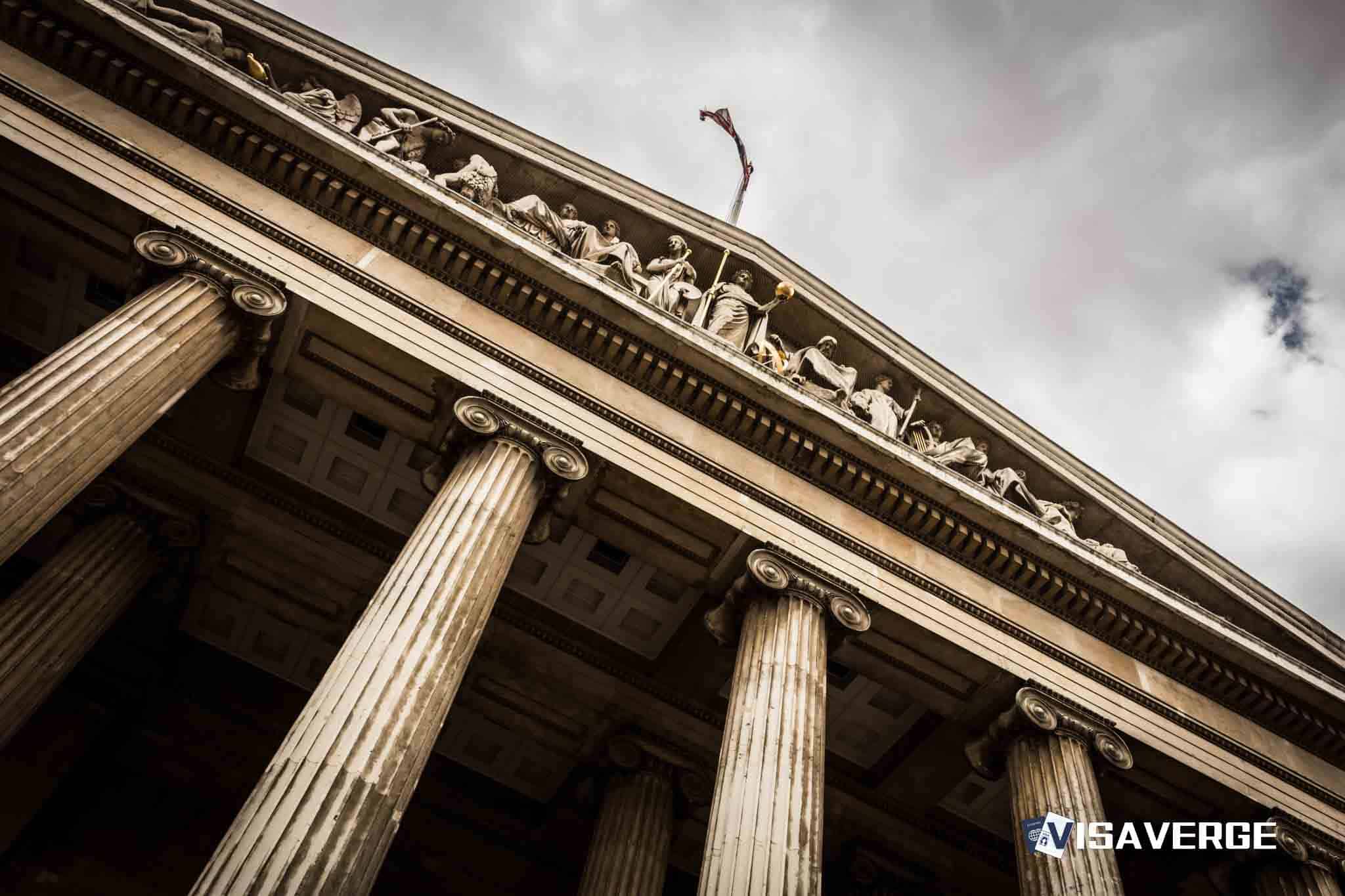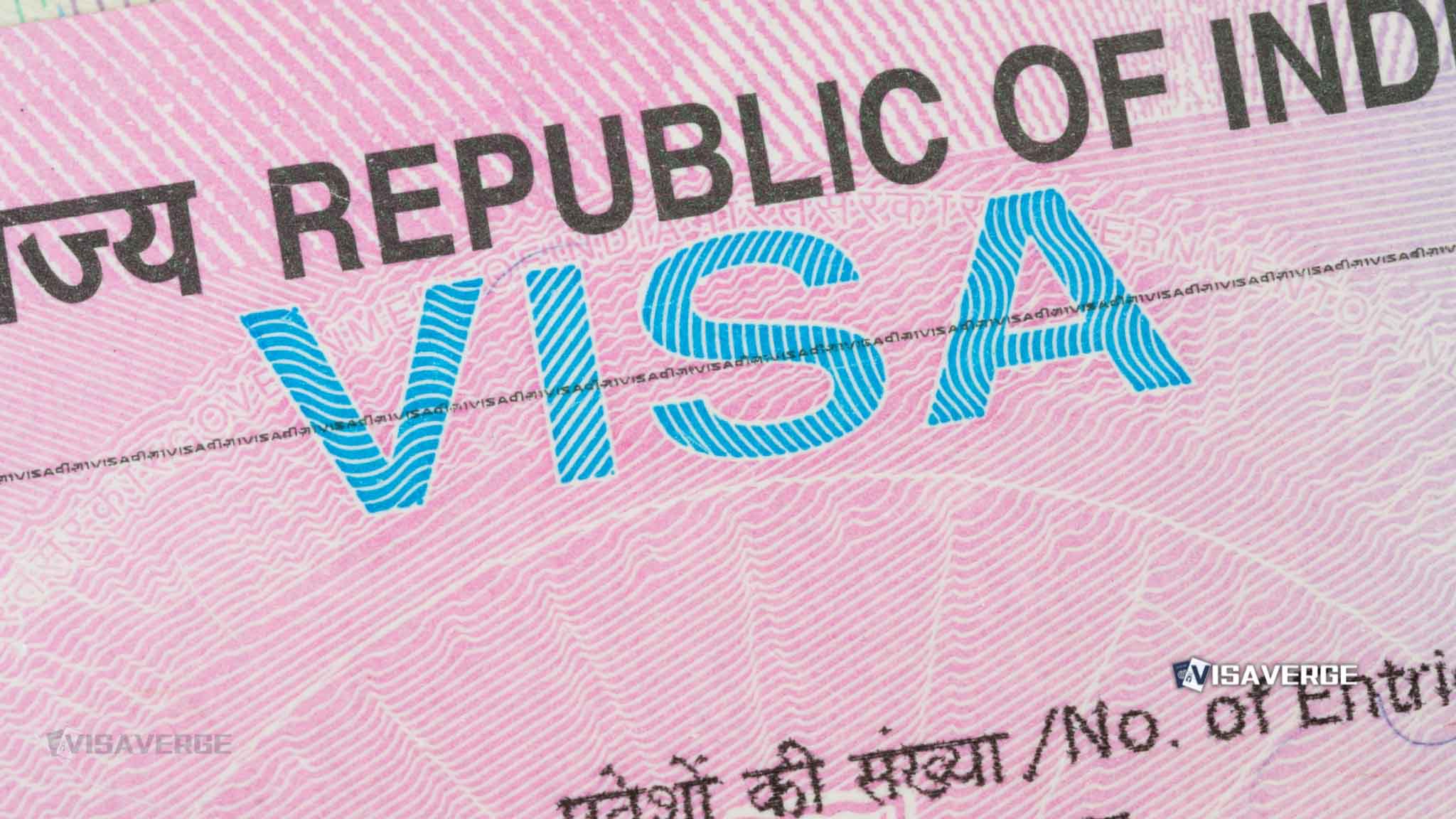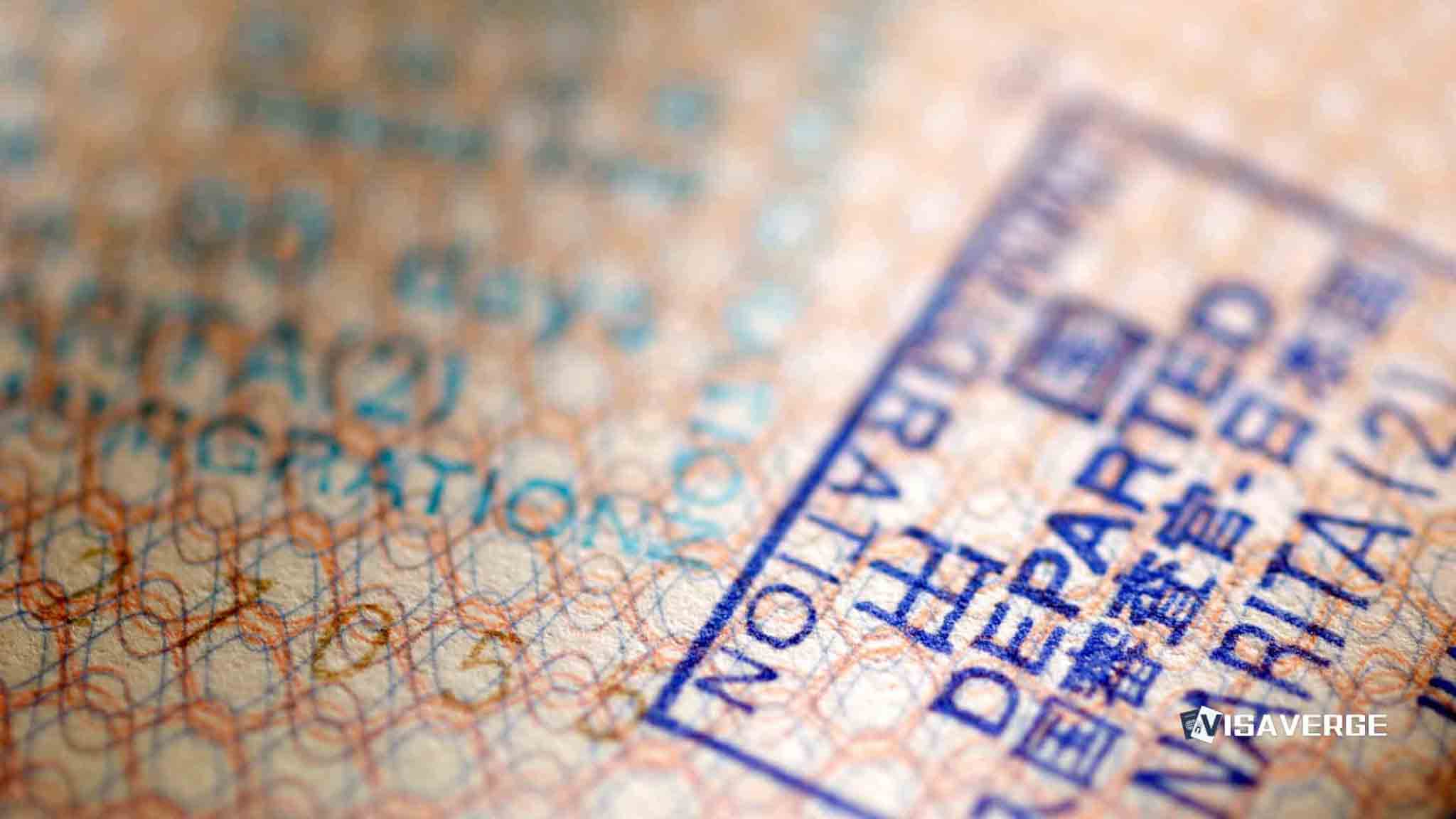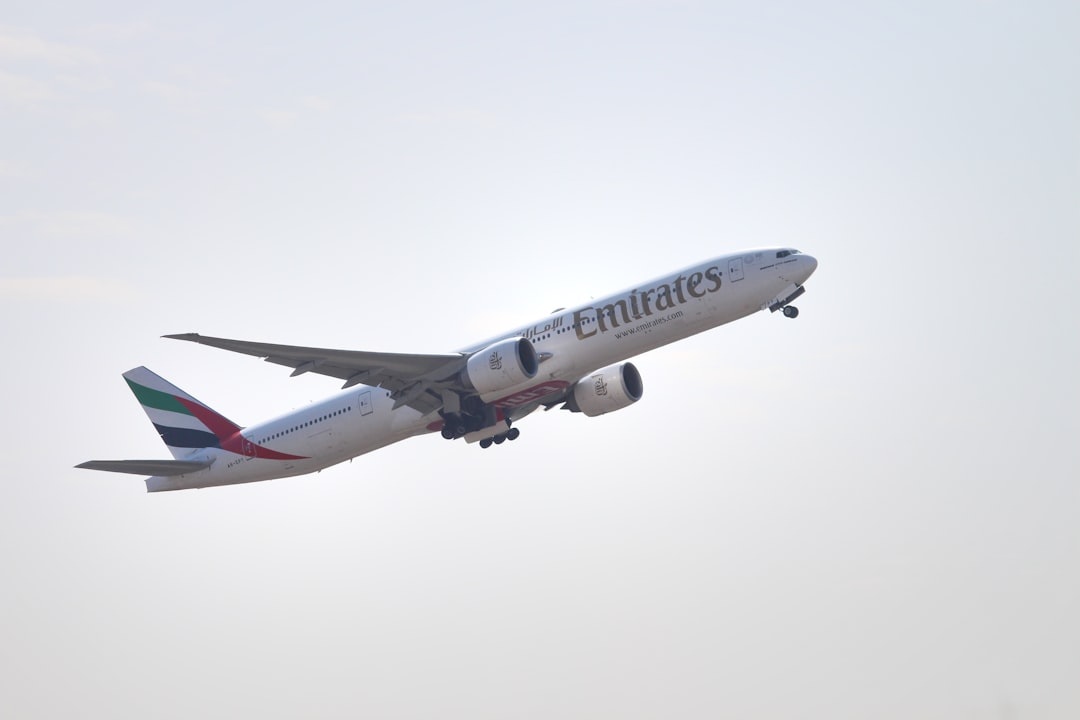Key Takeaways
• The One Big Beautiful Bill Act enforces a 3.5% excise tax on remittances by non-U.S. citizens after Dec 31, 2025.
• H-1B self-employed individuals, including 1099 contractors and LLC owners, must pay the tax on overseas money transfers.
• U.S. citizens are exempt when using certified remittance providers verifying citizenship status.
A new tax rule is set to change how many immigrants in the United States 🇺🇸 send money to family members overseas. The One Big Beautiful Bill Act, also known as H.R. 1 (119th Congress, 2025-2026), introduces a 3.5% excise tax on remittance transfers by non-U.S. citizens. This change, effective for transfers made after December 31, 2025, will directly affect H-1B self-employed individuals, including those working as 1099 contractors or running their own LLCs. Here’s what you need to know about who is affected, how the tax works, and what steps H-1B visa holders should take to stay compliant and avoid unexpected costs.
What Is the One Big Beautiful Bill Act and the New Excise Tax?

The One Big Beautiful Bill Act is a wide-ranging law passed by the House of Representatives on May 22, 2025, and presented to the President on July 3, 2025. The bill aims to raise government revenue, boost border security, and strengthen immigration enforcement. One of its most talked-about features is the new excise tax on remittance transfers.
Remittance transfers are money transfers sent from people in the United States 🇺🇸 to family or friends in other countries. Many immigrants, including H-1B visa holders, regularly send money home to support loved ones. Under the new law, a 3.5% excise tax will be charged on these transfers if the sender is a non-U.S. citizen. This tax is collected at the time of transfer, not as part of your yearly income tax.
The original proposal suggested a 5% tax, but lawmakers reduced it to 3.5% before passing the bill. In some cases, a 1% tax may apply to nonresidents, but the main focus is on the 3.5% rate for noncitizens.
Who Has to Pay the Remittance Excise Tax?
The new excise tax targets non-U.S. citizens who send money abroad. This includes:
- H-1B visa holders, whether they are employees, independent contractors (1099), or LLC owners
- Other noncitizen immigrants, regardless of their work status
The tax applies no matter how you earn your income. Whether you receive a W-2 as an employee, a 1099 as a contractor, or own a business as an LLC, you are subject to the tax if you are not a U.S. citizen and you send money abroad through a taxable channel.
Exemptions:
U.S. citizens and nationals are not required to pay this tax if they use remittance providers that have agreements with the U.S. Treasury to verify citizenship status. If you are a noncitizen, you should expect to pay the tax unless you qualify for a specific exemption.
How Does This Affect H-1B Self-Employed Individuals?
Many H-1B visa holders work as independent contractors (receiving a 1099 form) or operate their own businesses as LLCs. The One Big Beautiful Bill Act does not provide any special exemptions for these self-employed H-1B holders. The deciding factor is your citizenship status, not your job type.
Key points for H-1B self-employed individuals:
- If you are a non-U.S. citizen on an H-1B visa and you send money abroad after December 31, 2025, you will likely pay the 3.5% excise tax.
- The tax is charged at the time of transfer, not when you file your income taxes.
- There are no special rules or carve-outs for self-employed H-1B holders, whether you are a 1099 contractor or an LLC owner.
- The tax applies to remittances sent through banks, money transfer services, and other financial institutions.
Example:
If you are an H-1B visa holder working as a freelance software developer (1099 contractor) and you send $1,000 to your parents in India 🇮🇳, you will pay an extra $35 (3.5% of $1,000) as an excise tax on that transfer.
Tax Filing and Residency Rules for H-1B Holders
The Internal Revenue Service (IRS) treats many H-1B visa holders as U.S. residents for tax purposes if they meet the “substantial presence test.” This means you may need to file a regular U.S. tax return (Form 1040) and report your worldwide income. However, the new excise tax is separate from your income tax.
- The excise tax is only about sending money abroad, not about how much you earn.
- You still need to file your regular tax return as usual.
- The excise tax is collected by the remittance provider at the time of transfer, not by the IRS when you file your taxes.
For more information on tax filing requirements for H-1B visa holders, you can visit the IRS official page on H-1B visa tax rules.
How Will Remittance Providers Handle the New Tax?
Banks and money transfer companies are preparing to update their systems to:
- Identify who is a U.S. citizen or national (and exempt from the tax)
- Apply the 3.5% excise tax to transfers by noncitizens
- Report and remit the collected tax to the government
If you use a remittance provider that has an agreement with the U.S. Treasury to verify citizenship, and you are a U.S. citizen, you may avoid the tax. If you are a noncitizen, you should expect the tax to be added to your transfer.
Tip:
Always ask your remittance provider if they are a “qualified remittance provider” and if they can verify your citizenship status. This can help you understand if the tax will apply to your transfer.
What Should H-1B Self-Employed Individuals Do Now?
With the new excise tax coming soon, H-1B self-employed individuals should take several steps to prepare:
- Check Your Status:
Make sure you know your current citizenship and residency status. If you are not a U.S. citizen or national, you will likely be subject to the tax. - Choose Remittance Providers Carefully:
Use remittance providers that can verify your status and explain how the tax will be applied. Some may have agreements with the Treasury that could help you avoid the tax if you become a citizen or national in the future. -
Budget for the Tax:
Plan for the extra 3.5% cost on every dollar you send abroad after December 31, 2025. This can add up quickly, especially if you send money regularly. -
Stay Informed:
Watch for updates from the IRS, the Treasury, and your remittance provider. Rules and procedures may change as the government releases more details. -
Consult a Tax Professional:
If you are unsure how the new tax affects you, talk to a tax advisor who understands immigration and international tax law. They can help you plan your finances and stay compliant.
Why Was the Remittance Excise Tax Introduced?
Lawmakers included the remittance excise tax in the One Big Beautiful Bill Act to raise money for border security and immigration enforcement. The idea is that taxing money sent abroad by noncitizens will generate extra revenue for the government. According to analysis from VisaVerge.com, this tax is part of a larger effort to balance the federal budget while also addressing immigration policy concerns.
Some supporters argue that the tax will help fund important government programs. Critics, however, worry that it will hurt immigrant families who rely on remittances for basic needs like food, housing, and education.
How Does the Excise Tax Affect Different Groups?
H-1B Self-Employed Individuals
- Direct Impact: Must pay the 3.5% excise tax on remittances sent abroad after December 31, 2025.
- No Exemption for Job Type: The tax applies whether you are a W-2 employee, 1099 contractor, or LLC owner.
- Extra Cost: Sending $10,000 abroad in a year will cost an extra $350 in excise tax.
Employers and Clients
- No Direct Impact: The excise tax is paid by the sender, not the employer or client.
- No Change in Hiring Rules: The bill does not change how employers hire or pay H-1B self-employed workers.
Immigrant Families Abroad
- Reduced Support: Families who depend on money sent from the United States 🇺🇸 may receive less, as senders may reduce the amount to offset the new tax.
- Potential Hardship: The extra cost could make it harder for families to pay for essentials.
Remittance Providers
- New Compliance Duties: Must update systems to collect and report the tax.
- Possible Higher Fees: Some may raise service fees to cover the cost of compliance.
What Are the Main Details of the Remittance Excise Tax?
Here’s a summary of the most important facts:
- Tax Rate: 3.5% excise tax on remittance transfers by non-U.S. citizens
- Effective Date: Applies to transfers made after December 31, 2025
- Who Pays: Non-U.S. citizens sending money abroad through banks or remittance services
- Exemptions: U.S. citizens/nationals; transfers through qualified providers with citizenship verification
- Employment Status: No exemption for self-employed (1099 or LLC) H-1B visa holders
- Tax Type: Excise tax on remittance transfers, not income tax
- How to Comply: Use qualified remittance providers; budget for extra costs
- Legislative Status: Passed House; presented to President as of July 3, 2025
What Should You Watch for Next?
The One Big Beautiful Bill Act is either law or about to become law, depending on the President’s signature and any final rulemaking. The U.S. Department of the Treasury and the IRS will likely release more detailed rules about how the excise tax will be collected and enforced.
H-1B self-employed individuals should:
- Monitor official updates from the U.S. Congress and the Treasury Department.
- Check with remittance providers about how they will handle the new tax.
- Stay in touch with tax professionals who can help you adjust your financial plans.
Frequently Asked Questions
Q: Does the excise tax apply to all money sent abroad?
A: The tax applies to remittance transfers sent by non-U.S. citizens through banks or remittance services. If you are a U.S. citizen or use a provider that can verify your status, you may be exempt.
Q: Is the excise tax the same as income tax?
A: No. The excise tax is a separate charge on the act of sending money abroad. You still need to file your regular income tax return as usual.
Q: Can I avoid the tax by changing my employment status?
A: No. The tax is based on your citizenship, not your job type. Whether you are a W-2 employee, 1099 contractor, or LLC owner, you will pay the tax if you are a noncitizen.
Q: What if I become a U.S. citizen?
A: If you become a U.S. citizen or national, and use a qualified remittance provider, you may be exempt from the tax.
Where Can You Find More Information?
- U.S. Congress – H.R.1: One Big Beautiful Bill Act
- IRS – Tax Information for H-1B Visa Holders
- USCIS – H-1B Specialty Occupations
- U.S. Department of the Treasury
Final Thoughts and Practical Steps
The new excise tax on remittance transfers under the One Big Beautiful Bill Act will have a real impact on H-1B self-employed individuals who send money to family or friends abroad. There are no special exemptions for 1099 contractors or LLC owners. The tax is based on citizenship status, not job type. As reported by VisaVerge.com, the best way to prepare is to:
- Understand your status and the new rules
- Budget for the extra cost
- Use remittance providers who can explain how the tax applies
- Consult a tax professional for personalized advice
By staying informed and planning ahead, H-1B self-employed individuals can manage the new excise tax and avoid surprises when sending money abroad. If you have questions about your specific situation, reach out to a tax attorney or CPA who understands both immigration and international tax law. This will help you stay compliant and protect your financial well-being as the new law takes effect.
Learn Today
One Big Beautiful Bill Act → A 2025 U.S. law introducing tax and immigration reforms, including remittance excise tax enforcement.
Excise tax → A tax on specific transactions, here applied at 3.5% on money sent abroad by non-citizens.
Remittance transfers → Money transfers sent by immigrants from the U.S. to relatives or friends in other countries.
H-1B visa holder → A non-U.S. citizen authorized to work temporarily in specialty occupations in the United States.
1099 contractor → An independent worker who receives a Form 1099 instead of W-2 for tax reporting.
This Article in a Nutshell
Starting January 1, 2026, non-U.S. citizens sending remittances face a 3.5% excise tax under a new immigration law. H-1B self-employed individuals, even as contractors or LLC owners, must comply. Choosing qualified remittance providers and budgeting for costs is essential to avoid surprises and stay compliant.
— By VisaVerge.com







